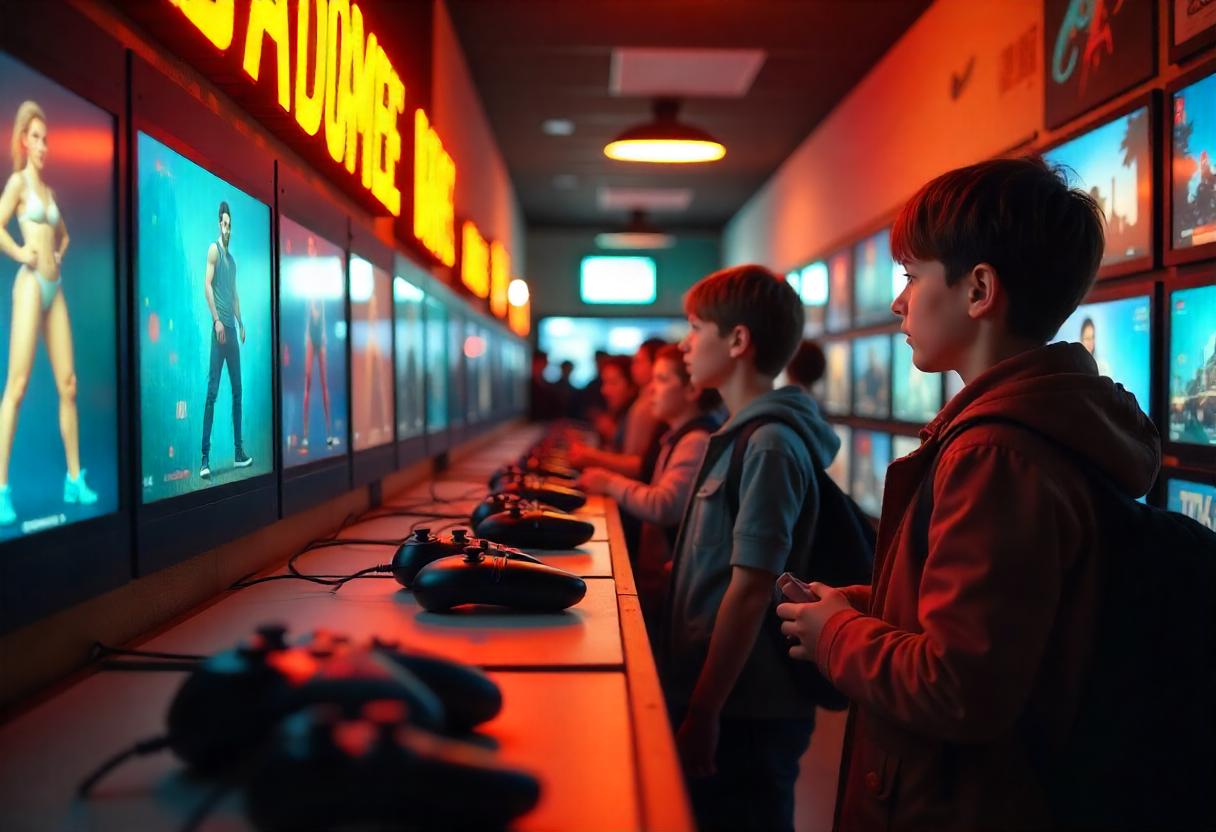Video game sales are not consistent. Just like fashion, travel, and retail, the gaming industry experiences immense fluctuations based on seasons, holidays, and major shopping events. Understanding these patterns is crucial for developers, publishers, and marketers looking to maximise sales and engagement.
Impact of Seasons on Video Game Sales
Seasonality in the gaming industry is primarily driven by consumer behavior and cultural events. The holiday season, which spans from late November to early January, is particularly impactful. During this period, video game sales often surge due to increased consumer spending on gifts and entertainment. Major retailers capitalise on this trend by offering substantial discounts and promotions, further boosting sales.
Consumer Spending Habits
During the holiday season, consumers tend to spend more on entertainment and gifts, which includes video games. This increased spending is driven by cultural traditions and the desire to purchase gifts for family and friends. As a result, game developers and retailers often see a significant spike in sales during this period.
Cultural Events and Holidays
Cultural events and holidays play a significant role in shaping consumer behavior in the gaming industry. For example, holidays like Christmas and New Year's Eve are associated with increased spending on entertainment and leisure activities. Similarly, events like Black Friday and Cyber Monday are pivotal in driving sales through deep discounts and promotions.

Seasonal Gaming Trends
Several key trends emerge during the holiday season that contribute to increased sales:
- Holiday Promotions: Events like Black Friday and Cyber Monday are pivotal, offering consumers significant discounts on games and gaming hardware. These sales events attract a large audience, with many gamers waiting for these days to purchase new titles or upgrade their gaming setups.
- New Console Releases: The holiday season often coincides with the launch of new consoles or major updates, which can significantly boost sales of both hardware and software.
- Seasonal Content: Games that incorporate seasonal content, such as themed events or items, see increased player engagement and retention. This approach not only enhances the gaming experience but also fosters a sense of community among players.
Holiday Season Gaming Sales
The holiday season is the most lucrative period for the gaming industry, with many games experiencing their highest sales during this time. For instance, major titles often receive special holiday-themed updates, which can attract both new and existing players. Additionally, the release of new consoles or major game updates during this period can further drive sales.
New Releases and Updates
The holiday season is a prime time for game developers to release new titles or major updates. These releases often coincide with increased consumer spending and can capitalise on the excitement surrounding new console launches. Games that are released during this period often receive significant marketing support, which helps to boost visibility and attract new players.
Marketing Strategies
During the holiday season, game developers and marketers employ various strategies to maximize sales. These include:
- Aggressive Marketing: Increased advertising efforts, including television commercials, online ads, and social media campaigns, help to raise awareness about new releases and promotions.
- Special Editions: Limited edition versions of games or consoles are often released during the holiday season, offering exclusive content or bonuses that appeal to collectors and enthusiasts.
- Bundling and Discounts: Retailers offer bundles that include games, accessories, and hardware at discounted prices, making gaming more affordable for consumers.
Seasonality in the Gaming Industry
Seasonality affects not just sales but also player engagement. Games that adapt to seasonal changes will see a significant boost in player retention. This is because seasonal content creates a sense of urgency and novelty, encouraging players to participate in limited-time events. For example, games like Overwatch and Fortnite have successfully utilised seasonal content to keep their player bases engaged throughout the year.
Player Engagement
Seasonal content is a powerful tool for maintaining player interest and driving revenue. Games that successfully incorporate seasonal content often see increased player retention and engagement. This approach not only enhances the gaming experience but also fosters a sense of community among players. For example, seasonal events can encourage collaboration and social interaction, which are key factors in maintaining a strong player base.
Community Building
Seasonal events and content help build a sense of community within games. Players are encouraged to participate in seasonal activities, which can include special challenges, tournaments, or collaborative tasks. This communal aspect of gaming enhances player engagement and encourages players to invite friends to join in, further expanding the game's player base.
Black Friday and Cyber Monday Gaming Deals
Black Friday and Cyber Monday are crucial events in the gaming calendar, offering consumers substantial discounts on games and gaming hardware. These sales events attract a large audience, with many gamers waiting for these days to purchase new titles or upgrade their gaming setups. For marketers, these events provide an opportunity to clear inventory and prepare for new releases in the coming year.
Discount Strategies
Retailers employ various discount strategies during Black Friday and Cyber Monday, including:
- Deep Discounts: Significant price reductions on popular titles and hardware encourage impulse purchases and help clear inventory.
- Bundles and Packages: Offering bundles that include games, accessories, and hardware at discounted prices makes gaming more affordable and appealing to a wider audience.
- Exclusive Deals: Retailers often offer exclusive deals or limited-time offers that are only available during these sales events, creating a sense of urgency among consumers.
Seasonal Marketing Strategies for Games
To capitalise on seasonal trends, game developers and marketers should consider the following strategies:
- Seasonal Content Updates: Incorporate themed content that aligns with current seasons or holidays to keep the game fresh and engaging. This can include special events, limited-time game modes, or seasonal cosmetics.
- Promotional Campaigns: Offer limited-time discounts or bundles during major sales events like Black Friday and Cyber Monday. These promotions can help attract new players and encourage existing ones to purchase additional content.
- Community Engagement: Foster a sense of community by hosting seasonal events that encourage player participation and interaction. This can include tournaments, giveaways, or collaborative challenges.
Social Media and Community Engagement
Social media platforms play a crucial role in promoting seasonal content and engaging with the gaming community. Developers can use these platforms to announce seasonal updates, share behind-the-scenes insights, and interact with players. This helps build a loyal community that is more likely to participate in seasonal events and share their experiences with others.
Gaming Industry Seasonality
The gaming industry's seasonality is influenced by consumer behavior and technological advancements. As technology evolves, so do the ways in which games are marketed and consumed. Trends like cross-platform gaming and cloud gaming are becoming more prevalent, offering new opportunities for seasonal engagement. For instance, cloud gaming allows players to access games on multiple devices, making it easier to engage with seasonal content from anywhere.
Technological Advancements
Technological advancements in gaming, such as cloud gaming and cross-platform play, are changing how games are accessed and played. These technologies allow players to engage with seasonal content from anywhere, using a variety of devices. This flexibility enhances player engagement and provides developers with new avenues for delivering seasonal updates and promotions.

Impact of Holidays on Video Game Sales
Holidays have a profound impact on video game sales, as they coincide with increased consumer spending. Games that are released or heavily marketed during these periods often see significant boosts in sales. Additionally, the holiday season provides an opportunity for game developers to release new content or updates, further enhancing player engagement.
Release Timing
The timing of game releases is crucial during the holiday season. Developers often aim to release new titles or major updates just before major holidays to capitalise on increased consumer spending. This strategy helps maximise visibility and sales potential, as consumers are more likely to purchase games during this period.
Seasonal Content in Video Games
Seasonal content is a powerful tool for maintaining player interest and driving revenue. Games that successfully incorporate seasonal content often see increased player retention and engagement. This approach not only enhances the gaming experience but also fosters a sense of community among players. For example, seasonal events can encourage collaboration and social interaction, which are key factors in maintaining a strong player base.
In conclusion, understanding and adapting to seasonal shifts is essential for success in the gaming industry. By incorporating seasonal content, capitalising on holiday promotions, and engaging with the gaming community, developers can maximise their sales and maintain a strong player base throughout the year. As the industry continues to evolve, embracing seasonal trends will remain a key strategy for driving growth and engagement.



